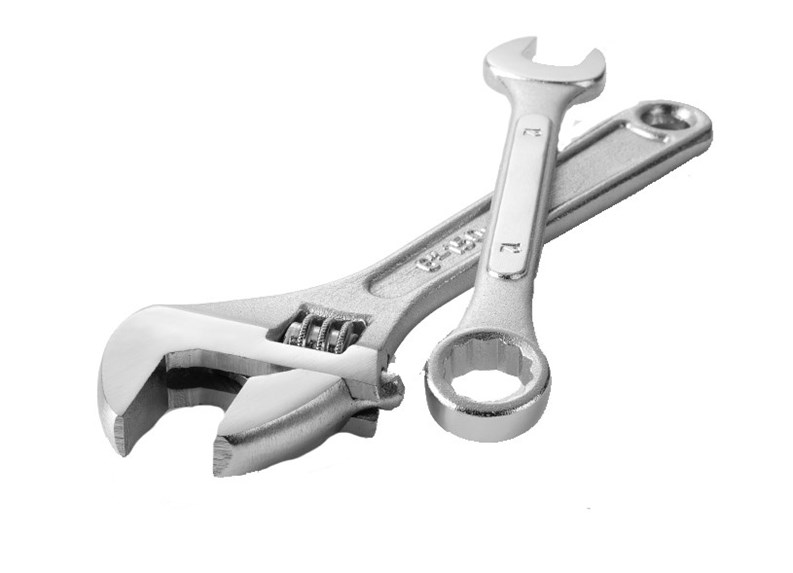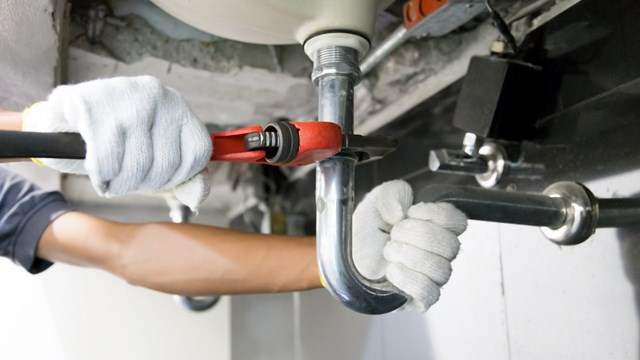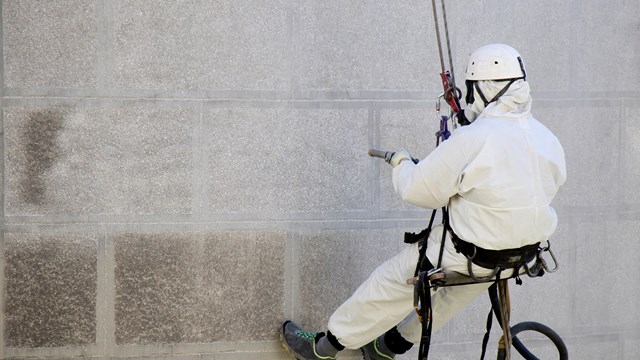"It’s probably the last remaining profession to make house calls!" says Eugene Marabello, president of The Superintendent’s Club of New York, an organization dedicated to filling a gap in the knowledge base of multi-family building maintenance personnel. Marabello speaks of one of the most valuable positions in your co-op or condo, that of superintendent.
Boards and residents should never underestimate the importance of a competent, conscientious super. The condition of your building’s mechanical systems, how well maintained its public areas are, and even aspects of its financial condition, can all be traced to how well your super performs. Knowing how to gauge your super’s performance and how to improve it, indeed finding the right person for the job from the beginning, go a long way toward making your property the best it can be.
Appreciate Your Super’s Value
At eight o’clock on a weekday morning, you won’t find many superintendents hustling to catch a train or waiting in line for the bus. Nor will you find most snug in their beds, dreaming the morning away. One resident manager (a super which resides in-house) for a condominium on the Upper West Side says that from eight to nine most mornings, once he’s finished his building rounds, he can be found in the lobby, shaking hands and taking down problems tenants are experiencing. "I’m there just so people can see me while they’re leaving for work. They tell me about their problems and I listen to them," he says.
This resident manager says compliments are few; he often hears complaints. Even when he goes out of his way, helping tenants whose problems don’t technically fall under the building’s responsibility, a word of thanks may never come. Industry experts cite the power of a positive word or two, which can do wonders for improving the relationship between the building’s superintendent and its residents. Too often, resident managers feel they frequently bear the brunt of negative attitudes or a general feeling of ungratefulness. When it comes to dealing with board members, this feeling can build up to resentment and stifle the board’s ability to communicate effectively with the building’s resident manager or superintendent.
A Clear Chain of Command
In addition to feeling under-appreciated, supers have expressed confusion over who’s in charge, especially when board members and managing agents give conflicting instructions. This can slow down or even halt any hope of creating a working dialogue between the board and the super.
"Some supers refuse to work for co-ops because of conflicting orders," explains Dick Koral, director of the Apartment House Institute at New York City’s Technical College and founder and secretary-treasurer of the Supers Club. They’re told one thing by board members, then another by the managing agent. Often the confusion is not only the fault of board/management clashes; it can also be the result of different board members handing out conflicting instructions. At one of his previous jobs, says the resident manager, "I ran into plenty of problems with one board member telling me to keep the lobby window curtains drawn and another saying I should open them. This would happen a lot and it got to the point where I wasn’t sure what to do."
He is not alone. According to managers and resident supers, confusion over whom to listen to is the key reason why some building problems are never resolved. The answer is to have a clear chain of command through which information flows. Set up correctly, the chain reduces the chances of resident managers having to stop and wonder whose instructions they should be following.
The most common chain is set up in this way: The board relays information to the board president, including any maintenance problems or difficulties the building is facing that would concern the resident manager. The president then speaks to the managing agent, and the agent instructs the resident manager. It might also be a good idea to have someone on the board designated liaison between the resident manager and managing agent, just so the board can be assured that everything is moving in a positive direction.
"This process, once established, should be followed and adhered to, not subverted in any way," Koral cautions. "The super takes orders from the managing agent, not the board of directors. When the board intervenes with the resident manager directly, it can cause a lot of problems. The only time this channel should be breached is if the building faces an emergency. That’s it."
Start from the Beginning
The only true way to start the board/super relationship off right is to make certain to hire the right person for the job. According to Marabello, "Most boards and managers really do not know what a super really does, and so are unable to identify criteria on which to base their selections." Koral suggests you quiz prospective candidates carefully. They should be able to explain a common maintenance procedure in detail, such as the operation of a building’s heating system and how it works. "They should also be able to present a rough schedule of maintenance for all building equipment, including roofs and walls. You should also ask how they handle disciplinary problems and if they have their own system of rewards and encouragement for staff who do well," he says.
Equally as important as technical qualifications is personality, and how well a candidate will fit in with the rest of the building. It’s important to include the board in the interview process. Where the manager may think one candidate would be fine, the board might feel he’s too heavy-handed or his experience doesn’t match up. In a building you can have a lot of political problems and you want to curb that. You need to look for someone with a proper personality fit.
Paul Herman of Rose Associates, a property management firm in Manhattan, has had many years experience helping and advising in the recruitment of new supers. His role involves a search and presentation of three suitable candidates for a board to interview. He says that when interviewing prospective supers, "boards must avoid questions as to family background or compositions, age, etc. which are illegal to ask. However, drug tests and background checks help clients know much of what they need to."
As always, it’s a good idea to know your prospective super’s background and work history. If they were working at another building, why did they leave? How would they handle specific problems, etc.? As a board member, you should feel obligated to know who’s being hired and not just accept management’s word that they’re a good candidate.
Gauging and Improving Performance
A successful super "should be cost-conscious and honest when it comes to working with vendors and contractors, proactive when it comes to heading off problems, and he or she should have all the appropriate training and licenses in such areas as boilers, HVAC (heating, ventilation and air conditioning) and fire safety," says Pat Goldwater, vice president of Aptek Management in Manhattan. "He also should be on the premises or immediately available 24 hours a day, seven days a week," she adds.
In fact, the Housing Maintenance Code of New York City, clearly states that in residential buildings of ten or more units, the super must live either on-site or within 200 feet of the building. According to Koral, smaller buildings (about 40 units or less), experience the most problems because, unless it is luxury housing, the building cannot afford a full-time super. "Residents must grapple with the reality that the super must work off premises most of the time, and hopefully he’ll be available to return for emergencies when called. Here, the lack of understanding of what a super does becomes most obvious, as most view the super primarily as a janitor."
But the job’s not that simple. A superintendent "should be able to effectively manage the handymen, the porters and all other building staff members." says Jerry Picaso, principal of the Manhattan-based management company Gerard J. Picaso. Despite all these "shoulds," it’s interesting to note that no specific description of a superintendent’s job responsibilities is included in the Union 32B/J contract. It does sometimes say what the super can’t do. For instance, supers can’t collect rent. But in general, job duties are not described.
Who decides what your superintendent is supposed to do? The super, managing agent and board work together in constructing a job description. From the perspective of management, it is better to have a clear understanding of what is expected of the superintendent. To ameliorate the apparent negatives of a written job description, any such document should contain a catch-all phrase, such as, "Plus any other directive issued by (whomever)."
Goldwater suggests that the job description contain clear directives regarding whether or not and under what circumstances a super can perform private work for residents, so that no misunderstandings occur. According to the Supers Club, many resident managers say they feel caught between management and tenants–a tenant will demand an item or a service that management isn’t willing to deliver, causing tension between and among those he must deal with on a daily basis.
Others supers find that the 24/7 aspect of their jobs is most stressful, the fact that they never feel like they are truly "off duty" because they live on the premises, and can therefore be contacted whenever an irate tenant wants a service performed, or just wants to vent. Still others find that their biggest cause of stress is that there are never enough hours in a day to complete their assigned work. They have too much to do, and too few hours. Whatever the cause, stress at work can cause burnout.
Help Around the Corner?
In terms of job training, Union 32B/J provides many classes, as do several area educational institutions including the Apartment House Institute. It is important to note that while most of these courses are technical in nature and many lead to eligibility for licenses appropriate to a super’s position, there are few, if any, courses that train superintendents in the necessary interpersonal skills they need to be top-notch in their profession. In response, several management companies have instituted in-house superintendent training programs that include such topics as staff supervision and how to get along with residents.
Koral says that both board members and managers express concern over the lack of any standards of competencies available for comparison to the items on candidates’ resumes. In response, The Supers Club is embarking on a Certification program. Such initiatives seek to create uniform standards for superintendents, making the job of finding the right individual a much smoother task. However, the most important aspects of finding and maintaining the right fit remain clear communication about the building’s chain of command and its expectations. Also necessary in creating a productive working relationship is providing decent living conditions, the tools necessary to get the job done (including a pager or a cell phone) and respect for the crucial services the super provides.
Ms. Grover is managing editor of The Cooperator.







2 Comments
Leave a Comment